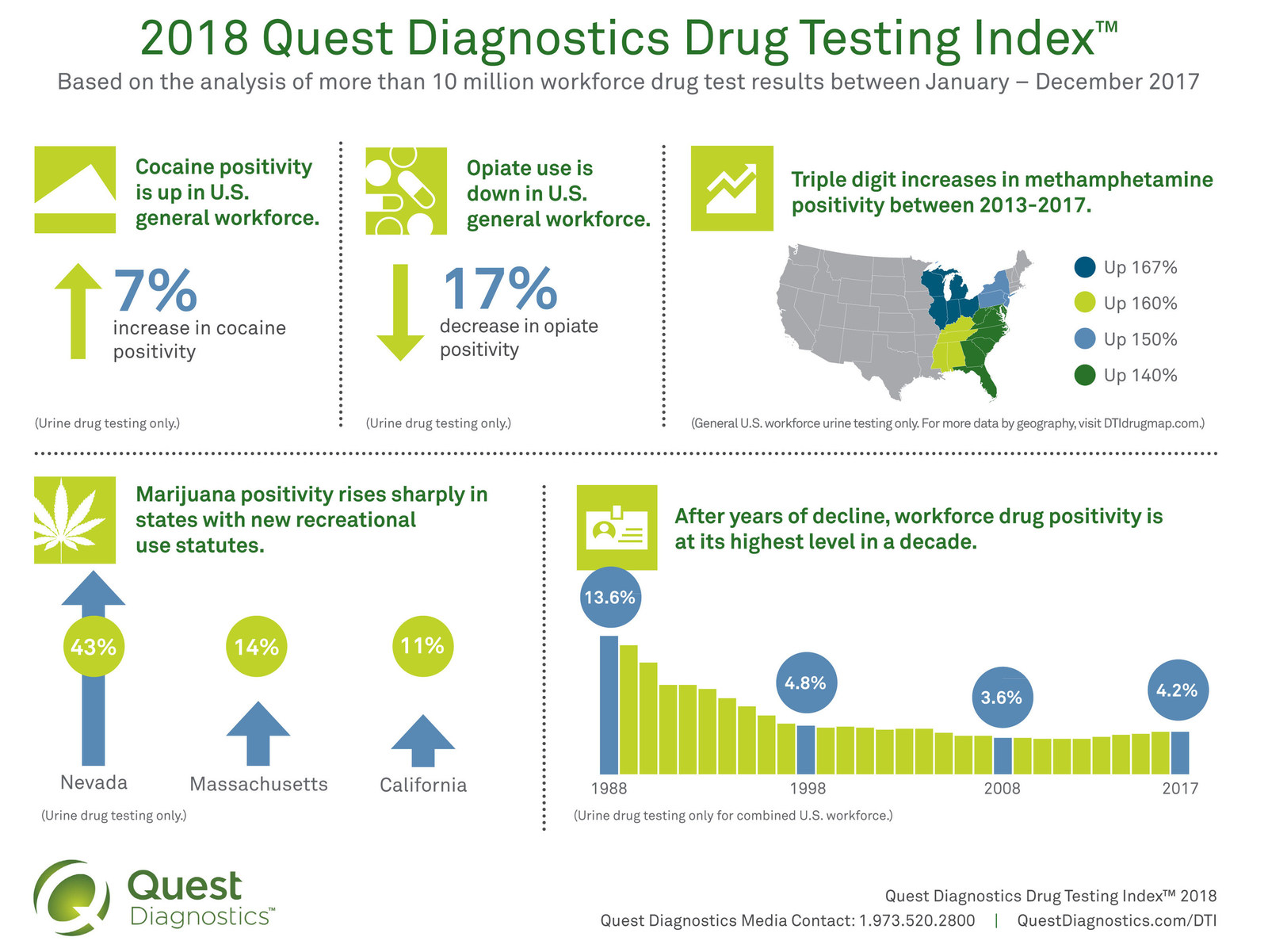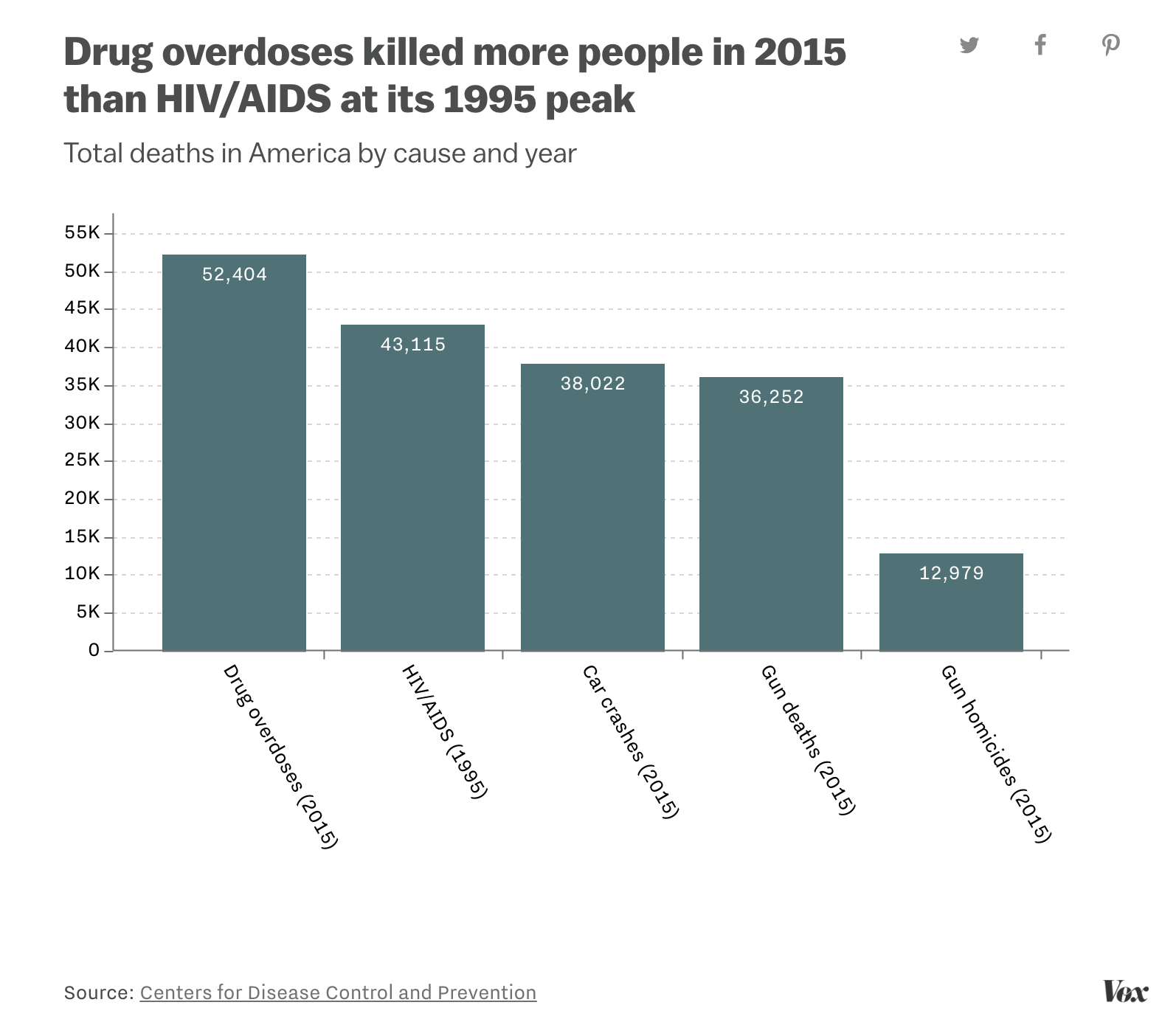A new study released by Quest Diagnostics found that 2017 continued to maintain the highest workplace drug positivity rates we’ve seen in a decade. While opioid specific use declined to a 10 year low, other drugs such as cocaine, methamphetamine and marijuana are rising in their presence in workplace drug tests.
New laws legalizing recreational marijuana and shifting attitudes towards drugs make many hesitant to believe the failed drug test rate will drop anytime soon. Barry Sample, the senior director of science and technology for Quest Diagnostics said, “It’s unfortunate that we mark 30 years of the Drug-Free Workplace Act with clear evidence that drugs continue to invade the country’s workplaces. Not only have declines appeared to have bottomed out, but… in some drug classes and areas of the country drug positivity rates are increasing.”
Some key findings from the 2018 Drug Testing Index include the following:
- Cocaine: This will be the fifth consecutive year that positivity rates for cocaine have increased. Certain states have even seen a double-digit increases during these years for cocaine positivity rates. Nebraska saw a 91% percent increase between 2016 and 2017, Idaho (88% increase), Washington (31%), Nevada (25%), Maryland (22%), and Wisconsin showed a 13% increase.
- Methamphetamine: Over the last 4 years, methamphetamine positivity has skyrocketed across the U.S.—particularly in the midwest and southern states. With 21 states having experienced 140-167% increase in positivity. Some of the states with the largest increases include: Illinois, Indiana, Michigan, Ohio, Wisconsin, Alabama, Kentucky, Mississippi, Tennessee, New Jersey, New York and Pennsylvania.
- Marijuana: For the past 5 years, marijuana has seen a steady increase of 4% for failed drug tests, including a nearly 8% increase in safety-sensitive workplaces. The largest increases for failed drug tests in this past year have appeared in states that have now legalized marijuana. These states include: Nevada (39% increase), California (20%), and Massachusetts (11%). The Drug Testing Index also showed that almost half (45%) of all workers with positive tests included some evidence of marijuana.
- Opioid: The large-scale fight against prescription opioid abuse for the past few years seems to be paying off with a 17% decrease from 2016 to 2017. This is a dramatic decline that put opioid specific use, other than codeine, at its lowest positivity rate in more than a decade.
- Heroin: Other good news showed that heroin positivity has decreased to a 3 year low – which marked almost an 11% decrease.
Sample said this is the first time they have seen such a broad increase across drug types. The decline in opioids shows a strong step forward, but overall rates are still remaining high. The increased workplace drug rates don’t seem to come as much of a surprise though, with the increase in marijuana use being more than expected.
“These increases are similar to the increases we observed after recreational use statues were passed in Washington and Colorado. While it is too early to tell if this is a trend, our data suggests that the recreational use of marijuana is spilling into the workforce, including among individuals most responsible for keeping our communities safe.”
it’s more important now than ever to understand the signs of substance abuse and be qualified to report such abuse in the workplace.
While it’s not completely clear what is causing this sustained increase in drug use at the workplace,it’s more important now than ever to understand the signs of substance abuse and be qualified to report such abuse in the workplace.



